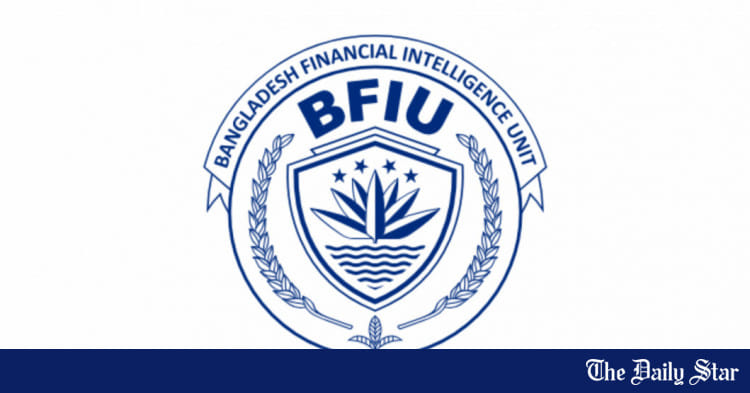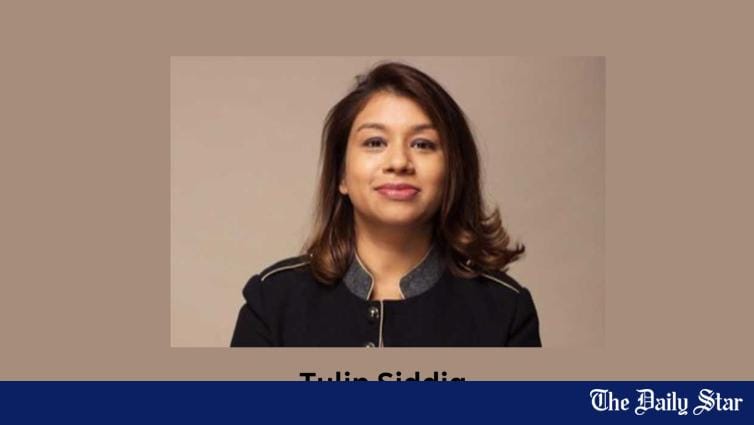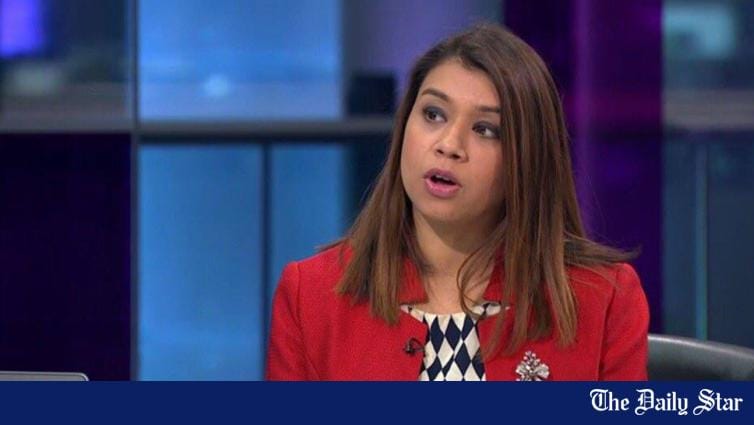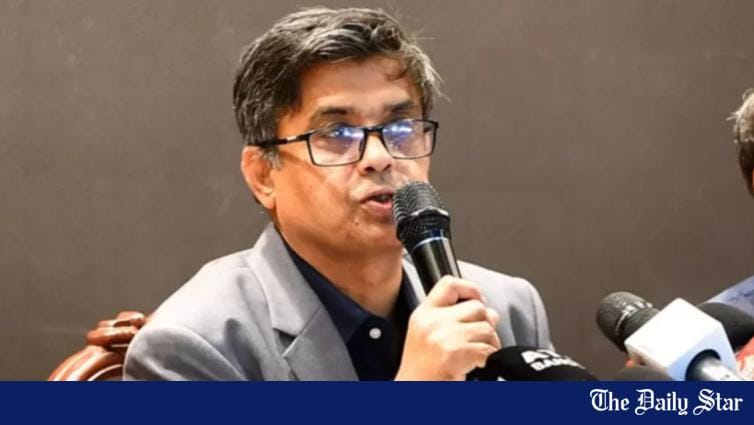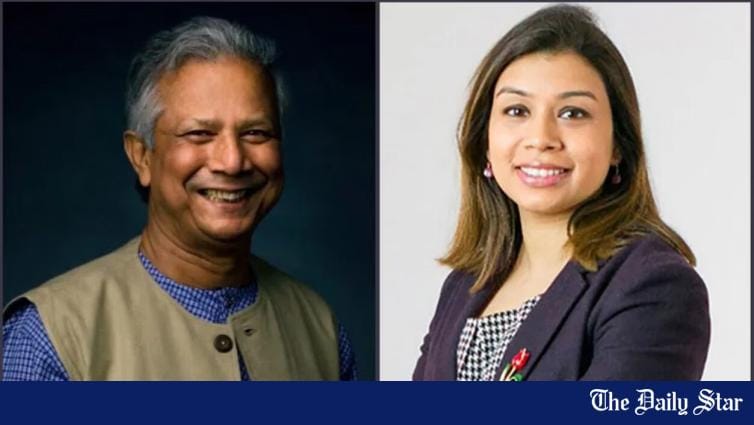ACC continues investigation against Javed, Rukhmila owning 580 flats in 3 countries
BSS
Published :
Jan 10, 2025 22:28
Updated :
Jan 10, 2025 22:28
Former land minister Saifuzzaman Chowdhury Javed and his wife Rukhmila Zaman have 580 apartments in the UK, the UAE and the USA.
A team of the Anti Corruption Commission (ACC) has started investigation suspecting that the former lawmaker could have more illegal assets at home and abroad.
According to ACC sources, in response to the ACC's application the court ordered attachment and freeze of those assets and money, laundered abroad by Javed and prevent those from transferring to others.
It said the ACC has so far got information about 343 apartments in the United Kingdom (UK), 228 in the United Arab Emirates (UAE) and nine in the United States of America (USA).
The ACC has also been carrying out investigation for his more assets and sought information from other countries about their assets, the ACC source said.
The ACC has already received information of financial irregularities, including maintaining accounts in different countries, transferring money abroad without approval of Bangladesh Bank (BB), and concealment of asset information in the income tax documents.
The ACC’s preliminary investigation revealed this information against Saifuzzaman Chowdhury Javed and his wife Rukhmila Zaman.
Javed and his wife acquired these immovable assets by laundering money just in nine years from 2015 to 2024, the ACC source said.
According to the information of the Land Registry Department of concerned countries, the ACC received information about acquiring apartments and other assets in favour of Javed and his wife by laundering thousands of crores of taka.
“There was no prior approval from the BB for sending such a huge amount of money abroad. There was no information about acquiring assets abroad in his income tax documents,” the ACC said.
Apart from this, it is also being investigated whether there are any assets in the names of his other family members or close relatives and his wife.
“If any such assets are found, those will also be included in the ACC’s investigation,” the source added.
Earlier, the ACC applied to the Metropolitan Senior Special Judge's Court in Dhaka to attach or freeze immovable and movable properties acquired in different countries in the names of Javed and his wife Rukhmila Zaman and investigate allegations of illegal wealth acquisition abroad.
The ACC also applied to the court seeking order to freeze accounts opened in the names of Saifuzzaman and Rukhmila or their institutions.
An officer of ACC investigation team told BSS on condition of anonymity, “We are getting information about corruption. We are hopeful that we will be able to unearth everything and bring them under the law.”
The ACC formed a three-member investigation team with ACC Deputy Director Ram Prasad Mandal as team leader to investigate immovable and movable properties owned by former Land Minister Saifuzzaman Chowdhury and his wife Rukhmila Zaman abroad.
Other members of the committee are ACC Assistant Director Md Mainuddin and Deputy Assistant Director Md Jewel Rana.
On October 14, 2024, the commission also approved permission to seek a court order to freeze immovable and movable assets acquired abroad by Saifuzzaman and Rukhmila.
In line with the ACC’s application, the court ordered the Ministry of Home Affairs to take necessary measures to inform the HM Land Registry Department of England and Wales of the UK, Dubai Land Department of the UAE, and the State Register of New York and Florida of the USA.
The court also directed the ACC investigation team to take necessary action regarding the four bank accounts opened in three branches in the UAE along with other accounts.
The court also directed the ACC team to inform the Money Laundering Department of BB, Bangladesh Financial Intelligence Unit and concerned parties about matter.
The ACC found four bank accounts of Saifuzzaman Chowdhury in Dubai Islamic Bank and Fast Abu Dhabi Bank, Janata Bank, UAE branch and TD Bank in the USA.
According to information received by Bangladesh Sangbad Sangstha (BSS), it was found that an account bearing no. 065580072906301) was opened in Dubai Islamic Bank on January 8, 2015.
Besides, two accounts were opened in Fast Abu Dhabi Bank (One account number is 1611003934358010), which was opened on January 31, 2017. Later, another account (No-1651003934358025) was opened in the same bank on August 24, 2017.
Another account bearing no-AE170319331001010002599 was opened with Janata Bank, UAE branch on August 3, 2023.
Besides, a beneficiary account (no-4372295810 named ZTS properties LLC) was opened in the American TD Bank. The account made transactions of US$ 200,206.72 in four months from April 2, 2021 to July 29, 2021. The dollars were transferred through Capital World Maritime Ltd account with Hongkong and Shanghai Banking Corporation (HSBC) and another account with First Abu Dhabi Bank.
The information was found that US$ 50,910.18 was transferred to USA TD Bank from accounts of Capital World Maritime Ltd of HSBC and First Abu Dhabi Bank on July 29, 2021, while US$ 8960 was transferred from First Abu Dhabi Bank account on July 26, 2021.
In line with the transactions, US$ 34,650.87, US$5683.72 and US$48,851.95 were deposited to TD Bank from HSBC on July 1, April 2 and April 19, 2021 respectively.
The ACC also received information about 10 commercial establishments set up in the names of Saifuzzaman Chowdhury Javed and Rukhmila Zaman.
Of which, eight are in the name of Saifuzzaman Chowdhury and two are in the name of his wife Rukhmila Zaman. The companies of Saifuzzaman are ZTS Properties Ltd. (License No. 10010608, dated 17-02-2016), Zeba Trading FZE (License No. 5011567, dated 18-02-2015), New Venture (London) Ltd. (License No. 07312257, dated 31-07-2010), Sadaqat Properties Ltd. (License No. 13525107, dated 22-07-2021), Zeba Properties Ltd. (License No. 13467172, dated 21-06-2021), Aramit Properties Ltd. (License No. 12589869, dated 06-05-2020), Zaria Properties Ltd.
(License No. 13467532, dated 21-07-2020) and ZTZ Property Ventures Ltd. (License No. 1270118, dated 30-07-2020). Rukhmila Zaman has two companies - Rukhmila Properties Ltd. (License No. 12089564, dated 06-07-2019) and RF Acquisitions Ltd. (License No. 15819589, dated 04-07-2024).
Former Land Minister Saifuzzaman Chowdhury and his wife Rukhmila Zaman have been accused of laundering money abroad and amassing huge illegal wealth abroad through money laundering during the Awami League regime.
Saifuzzaman Chowdhury is the son of Akhtaruzzaman Chowdhury Babu, a Chattogram Awami League leader and a close political associate of Sheikh Mujibur Rahman.
Saifuzzaman Chowdhury, is also known as Javed in his family and constituency. Javed, a businessman, became known by focusing on business with his father and was elected as the leader of a business organization.
He also served as the president of the Chattogram Chamber of Commerce and Industry (CCCI). In absence of his father, Javed was the chairman of United Commercial Bank (UCB). After demise of his father, his aunt Sheikh Hasina gave Javed party nomination for Anwara parliamentary constituency of Chattogram-14.
Akhtaruzzaman Chowdhury Babu, a long-time political associate of Sheikh Mujibur Rahman and Sheikh Hasina. Sheikh Hasina used to address Akhtaruzzaman as ‘Babu Bhai’. So, Sheikh Hasina became Saifuzzaman’s aunt.
In the constituency, he put on Mujib coat and started party work as his father's legacy. Javed also won the election and became first State Minister for Land and later he also became MP in a farcical election and became land minister.
He became greedy for land after taking the charge of the land ministry. He became desperate for acquiring land and apartments in various lucrative places in the UK, the USA and the UAE.
After taking charge as the Minister of State for Land, Javed resigned from the post of chairman of UCB and his wife Rukhmila Zaman replaced her husband as the chairman of the bank.
The ACC's preliminary investigation, which was obtained by BSS, showed that there are 15 apartments in the Burj Khalifa in the UAE, a popular place in the world. Of these, eight are in the City Center Residence and seven were purchased and registered on June 22, 2022.
Forty-one apartments were found at Aldalus in the UAE, of which 33 were registered in January 2022. Thirty-one apartments are in the Pulu Residences - Building A2 at Nad Al Sabah, which were registered on February 8, 2022. Twenty apartments were located at Premium Residences at Jebel Ali area, of which 17 were registered on January 27, 2022.
He has 20 apartments in Peninsula and Urban Oasis of Gulf Commercial, 15 at Sunrise Legend and 228 properties in various important locations in the UAE, including Esmana Waves, Himalaya Tower and Meudon Views in Barsha South.
In the UK, 343 apartments were identified in various elite areas around the city of London. In the USA, there are nine apartments, of which eight are in New York and another in Florida.
Dr Qazi Akhtar Hamid, Senior Advocate of the Supreme Court, said Section 8 of the Mutual Assistance in Criminal Matters Act 2012 stated that a country can request another country to investigate a crime.
“If there is no bilateral agreement between the two countries, if a foreign country requests assistance in judicial and other proceedings and the crime is punishable under the law of that country, the best possible mutual cooperation will have to be provided in that matter,” he said.
Akhtar Hamid said section 9 of the said act stated that the central authorities of the countries with which Bangladesh has bilateral agreements can request it according to the Rules of Business.
“If there is no bilateral agreement, then this request can be made through diplomatic channels,” he added.
Regarding the return of assets acquired abroad and money laundered, Barrister Ruhul Quddus Kajal, a senior lawyer of the Supreme Court, said, “Money laundering is a problem all over the world. Money laundering is a criminal offense in the state structures of the whole world. Every country is against money laundering.”
He, however, said that there is no strong application of the law to discourage money laundering of one country with another internationally.
As a result, there is uncertainty in bringing back the laundered money, he added.
Barrister Kajal said, “If you request the countries with which the Bangladesh government has bilateral agreements, results can come. The solution of many problems depends on mutual trust and relations beyond the agreement. However, it will depend on the goodwill of the governments of both countries.”



